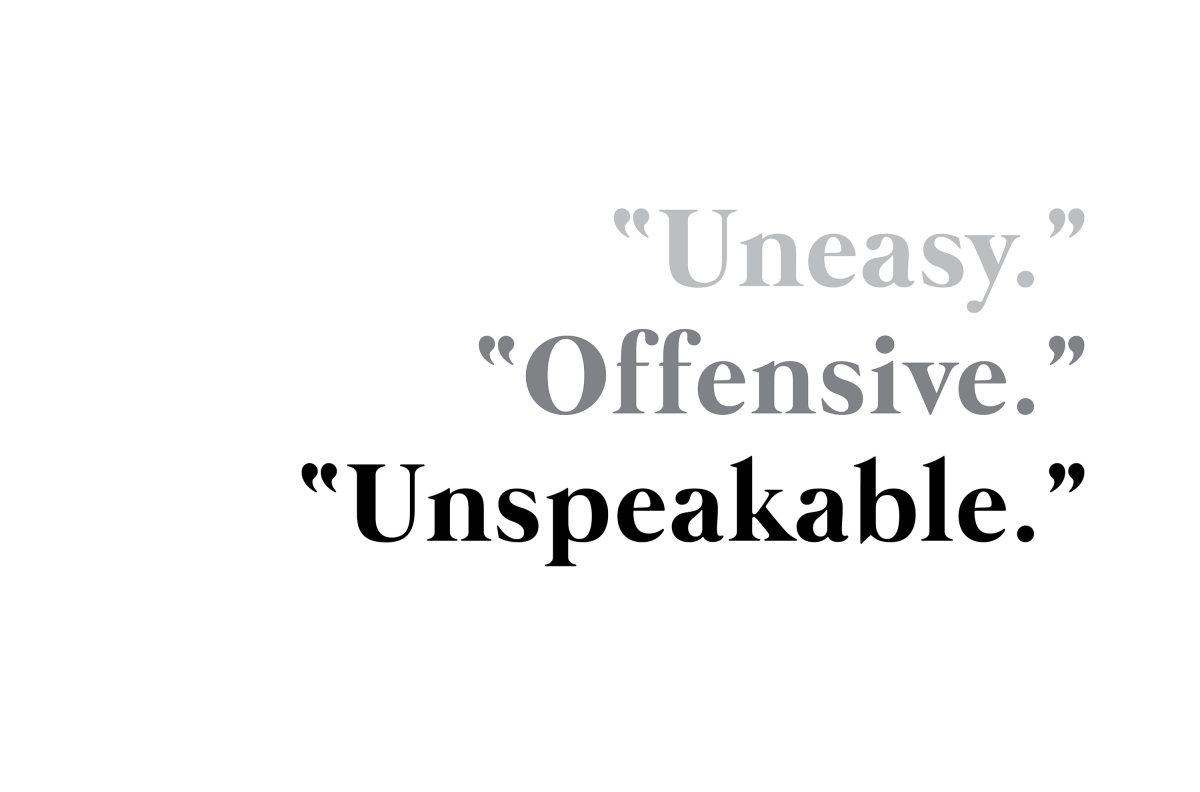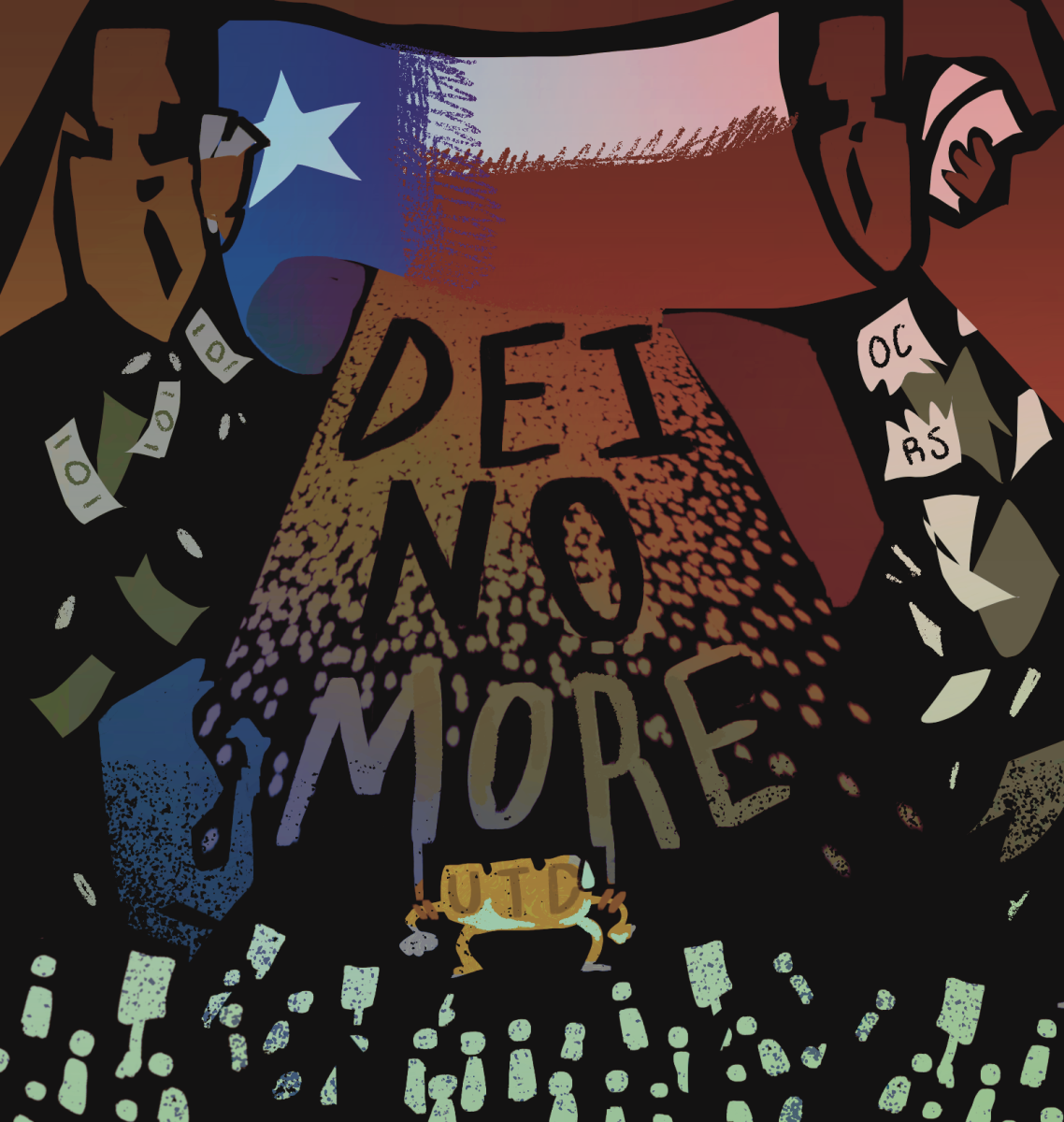Food service workers accuse Chartwells management of misconduct
Editor’s Note: The Mercury’s publication of a Dec. 3 report, in which former and current Chartwells workers alleged verbal abuse, unfair labor practices and sexual harassment, came amid efforts by workers to form a union, with the support of a local chapter of the United Food and Commercial Workers.
The harassment, she said, began gradually. When she first started at the Chick-fil-A on campus, she noticed she seemed to attract more attention from the manager. Other workers said the manager had a reputation of favoritism, and that he preferred a particular type.
By 2017, she said, the manager would regularly make inappropriate comments and suggestive gestures toward her and other women at work.
The former student worker is one of five current and former Chartwells employees who allege managerial misconduct and workplace grievances. She said she was a target of sexual harassment by a Chartwells manager and agreed to speak to The Mercury on the condition of anonymity and only after her graduation on Dec. 19.
“For the girls who work there, it really becomes uncomfortable at times — the way he acts, the way he speaks,” she said.
From there, she said, things only got worse.
“A few months ago, I had to go to him (because) I thought that (I) had exceeded hours,” she said. “It’s my graduation semester and I don’t want any problems.”
The former student worker is the holder of an F-1 visa. Legally, she cannot work more than 20 hours a week, and without special authorization, she may not work off campus.
“He checked and said, yes, they had been exceeded, but that ‘for the right cost,’ he would rectify it,” she said. “Then, he said something unspeakable.”
In a phone interview, she said she could not bring herself to repeat aloud what he said to her.
“It was the maximum, the most offensive demand that can be said to a girl,” she said.
The former student worker said that she didn’t feel safe reporting the incident for fear of jeopardizing her current and future job prospects.
“The day after, I had to go to work. He didn’t say anything (out of the ordinary) but I felt so uneasy,” she said. “He was in front of me, talking, as if nothing had happened.”
The manager also followed her on social media. She said he would send her lewd messages in response to her Instagram stories.
The Mercury confirmed that her former manager continues to follow her on Instagram, along with a number of other current and former student workers. Most of the accounts belong to young women.
A Chartwells official confirmed the manager, named by numerous current and former employees as the perpetrator in this and other alleged cases of sexual harassment, is no longer an employee, as of late December.
The former student worker said she was unaware of the change in employment and that the former manager continues to harass her on social media.
A Chartwells representative on campus did not respond to a request for comment on this report. A spokesperson for Chartwells’ corporate office declined to comment after The Mercury cited its policy of not submitting interview questions in advance.
***
Neha Kalra, an information technology and management graduate student and former employee at the Chick-fil-A on campus, said the former manager had a reputation of favoritism when it came to hiring and assigning duties.
“If a girl isn’t good looking, then he’ll just reject them (for a job),” Kalra said. “This is the thing I don’t like about (him) — this is not how you judge people.”
The manager hired Kalra at the beginning of the spring 2018 semester. She applied for the job with two of her male friends. Kalra said despite similar qualifications between the three, only she was hired.
“I’m not saying that he gives jobs only to girls, but he gives jobs only to (people he thinks) are good looking,” Kalra said.
Kalra said most of her coworkers at Chick-fil-A were women. In assigning duties, the manager would often put female workers at the counter and male workers in the back, she said.
She also said there were times when she noticed the manager verbally abusing certain employees, but she didn’t know why exactly. She said he would allow employees to occasionally take home free food, but for some, certain foods were off limits.
“When he saw that (a new employee had taken a milkshake), he was so angry with her,” Kalra said. “There was a dustbin there and he took it and threw it. But for me, I was able to do everything I wanted.”
Kalra said the former manager followed her on Instagram. She said other than observing mistreatment and favoritism in the workplace, she herself didn’t have a problem with the manager.
At Dining Hall West, a current student worker said she often saw international students were overlooked for the less physically demanding job of cashier. She said she would prefer to remain anonymous for fear of losing her job.
“All of us got recruited as food service worker-cashiers, but not many of us (international students) get to do the cashier (part of the) job,” she said. “(Managers) prefer the U.S. students for that.”
***
Another former student worker interviewed in the Dec. 3 report said his supervisors at Chartwells’ Starbucks location stopped granting him the required approval needed to clock in. As a result, initially he did not receive pay.
Two current Chartwells employees independently confirmed they still have difficulty clocking in and clocking out in a timely manner.
For student workers on an F-1 visa, failure to clock in and out at scheduled times could result in more than just lost pay. The dining hall student worker said if she exceeds 20 hours at the end of the week, she would be in violation of her visa terms and would face possible deportation.
***
Several employees said they also weren’t always able to take a break when they needed to.
“It’s very hectic. The shift is five hours and you’re supposed to get a half hour break,” the dining hall worker said. “For a four hour shift, you get a 15 minute break, and if there’s no one else on the floor, you won’t get a break at all.”
The worker, who is a full-time master student, said the work at Dining Hall West could be physically demanding, depending on what tasks needed to be completed.
“You have to continuously stand and clean tables. If you’re on the serving line, you can’t eat even if it’s super late — you just keep standing there and serve (food),” she said. “It drains you. When you go back home you don’t feel like doing anything. You just want to sleep.”
Kalra said at Chick-fil-A, during a busy lunch shift, she would often not be allowed to leave the register to get water or to use the restroom if there was a line.
“Speaking continuously for four hours without drinking water was very difficult for me,” Kalra said. “Working at the counter, you have to say ‘hello’ and ‘thank you’ to everyone, and the line is always very long.”
Kalra said supervisors strongly dissuaded her from taking a break to get water unless she lost her voice or found it otherwise difficult to speak.
Another employee, who requested anonymity, said she was not allowed to go home after experiencing a serious medical emergency as a result of a chronic illness. She said she was then asked to work the remaining five hours of her eight-hour shift.
“They did not let me go home – they didn’t even offer it,” the worker said. “They didn’t file an incident report or anything. Just ‘get up and go back to work.’”
***
Kalra said employees at the Moe’s on campus were receiving $9.50 an hour, compared to her own hourly rate of $8. She said when she asked her own manager about the pay disparity, she received varying answers.
“He told us that (the manager at Moe’s) would give (his workers) $9.50 (an hour) and that’s why he got fired. After that, they just told us (Moe’s employees) have to do more work,” Kalra said. “But most of the people at Moe’s are my friends. They don’t do anything extra.”
A current Chartwells student worker confirmed that the employees at Moe’s were paid more despite similar workloads to others paid less.
Another way for student workers to earn a higher wage is to be promoted to supervisor. But a current international student worker said that she had never seen an international student receive a promotion where she works in Dining Hall West.
“I don’t think that is an option for us,” she said. “It’s not like we can grow in that company or anything.”
***
Chartwells resumed normal operations for the spring semester on Jan. 14. Prior to publication, current workers said they did not notice any significant changes in policy or operations, except for the change in management at the Chick-fil-A on campus.
Since the Dec. 3 report, several workers, both at Dining Hall West and in the Student Union, said they’ve noticed a change in managements’ attitude towards workers.
A full-time employee said she’s felt particularly targeted since she made her involvement with union organizers known to management.
At Dining Hall West, a current student worker said she’d noticed an overall change.
“Even the full-time employees, they say it’s not like before,” the worker said. “They say that everyone is micromanaging — they want to know what you do, where you are, how much time do you take. I think you need to trust your employees to have them satisfied.”
Meanwhile, the former student worker who alleged sexual harassment said her experience will haunt her, even as she leaves UTD.
“I wanted to bring this up so this doesn’t happen to any other girl there,” she said.
She said she knew of other students who had similar experiences at Chartwells.
“The other girls, they also had problems with managers, but they may not be speaking up because they have this fear of losing their job,” she said. “As an international student, it’s really important to have something in hand if you don’t have an internship. Losing a job is really not good.”
Cristian Otero, an evening utilities supervisor at Chartwells, said while he thinks it’s good that the Chick-fil-A manager will be replaced, there’s a long way to go.
“There are people who’ve gone to management, and management hasn’t helped them at all, or taken them seriously,” Otero said. “And the buck doesn’t stop with (the manager). He’s not the only problem.”

















